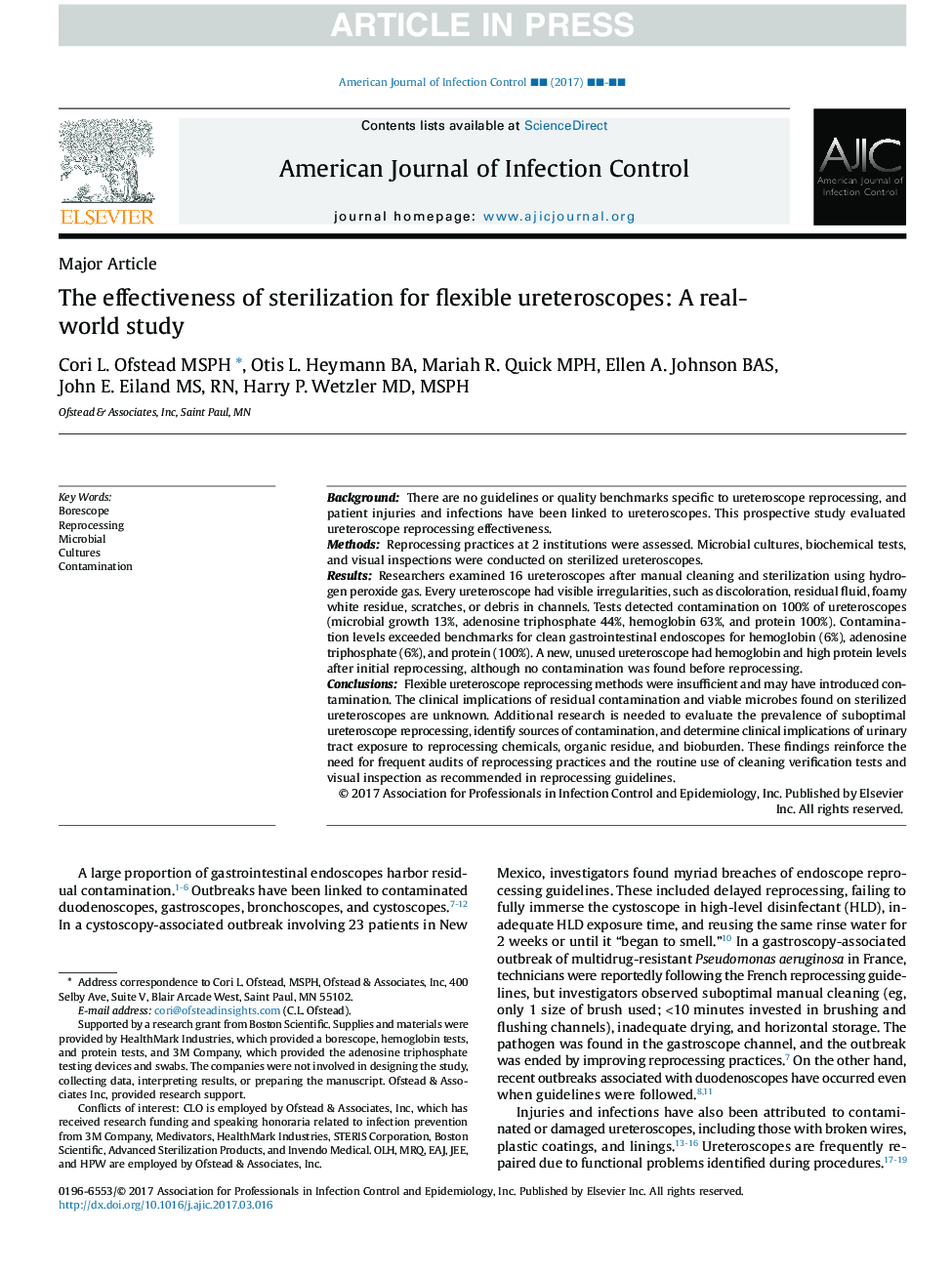| Article ID | Journal | Published Year | Pages | File Type |
|---|---|---|---|---|
| 5566214 | American Journal of Infection Control | 2017 | 8 Pages |
Abstract
Flexible ureteroscope reprocessing methods were insufficient and may have introduced contamination. The clinical implications of residual contamination and viable microbes found on sterilized ureteroscopes are unknown. Additional research is needed to evaluate the prevalence of suboptimal ureteroscope reprocessing, identify sources of contamination, and determine clinical implications of urinary tract exposure to reprocessing chemicals, organic residue, and bioburden. These findings reinforce the need for frequent audits of reprocessing practices and the routine use of cleaning verification tests and visual inspection as recommended in reprocessing guidelines.
Related Topics
Life Sciences
Immunology and Microbiology
Microbiology
Authors
Cori L. MSPH, Otis L. BA, Mariah R. MPH, Ellen A. BAS, John E. MS, RN, Harry P. MD, MSPH,
